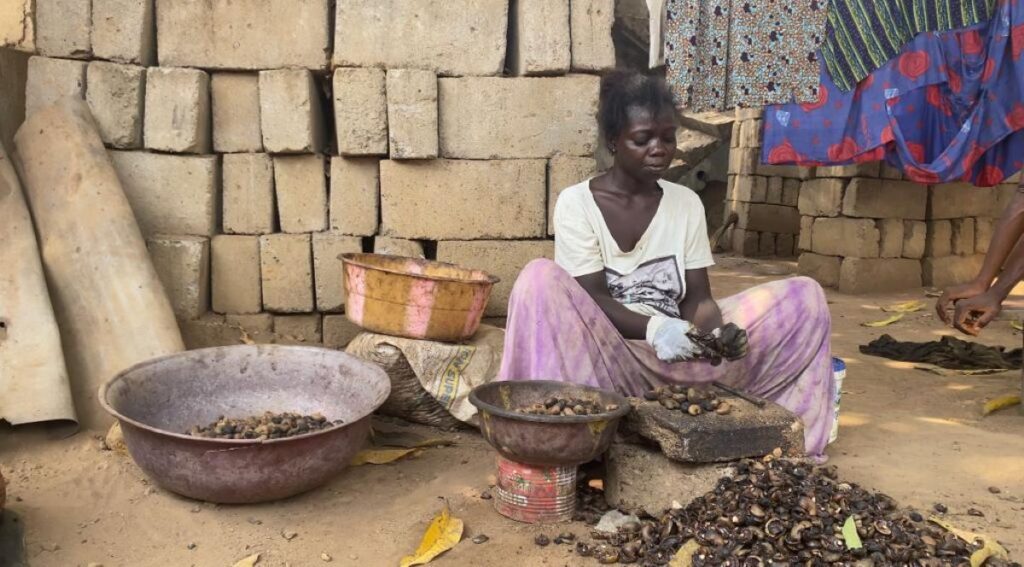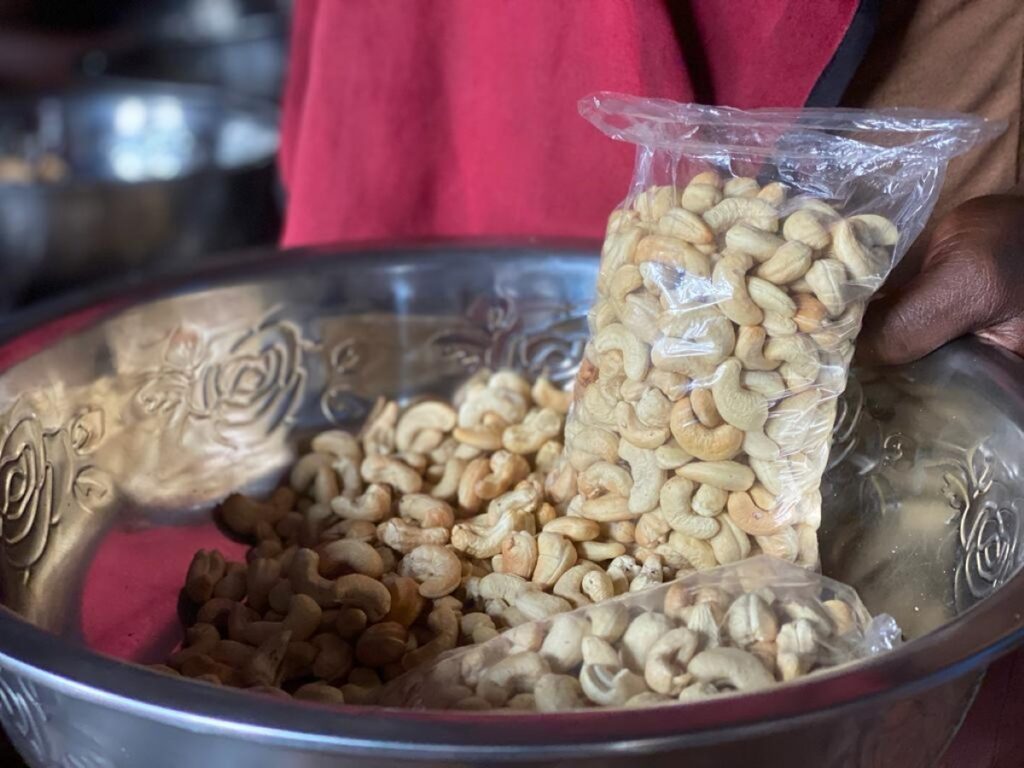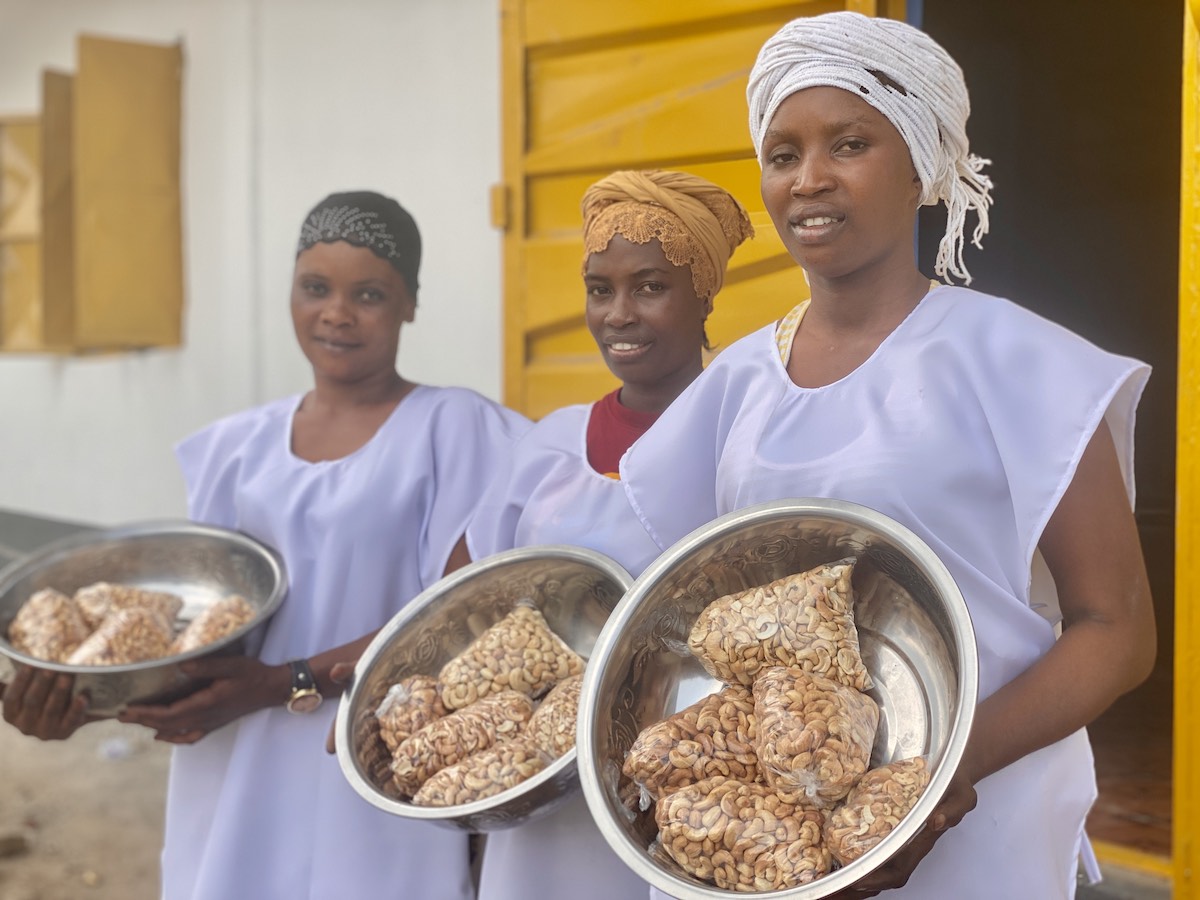Construction of the first modern cashew processing factory in Western Sierra Leone is enabling cashew farmers and women processors to meet both local and international standards, and earn more from their work.
Built by Solidaridad with funding from the European Union under the Boosting of Agriculture and Food Security (BAFS) programme, the factory is equipped with modern equipment to process cashew nuts in a more efficient, hygienic and convenient way.
Andrew Kojo Morrison, Country Representative for Solidaridad in Sierra Leone, said the factory will support over 300 processors and vendors in parts of the country where cashew is predominantly grown. Besides processing, the factory support the packaging and selling of cashew products in local and global markets.
It is estimated that the facility can process over 600 kilograms of raw cashew kernels daily and about 300 metric tonnes annually. The increased production will lead to an increase in revenue for cashew farmers and processors, and improve the cashew value chain in the country. It will also create direct linkages for farmers to sell their raw kernels to processors.
“With the establishment of the cashew processing centre, women can now move away from the old processing method to a more hygienic environment, which is an important step towards a sustainable cashew value chain in Sierra Leone,” Andrew said.

Providing decent work for women
Memuna Kamara, a 45-year-old cashew processor and leader of the Waterloo Cashew Women Processors Association, believes that the factory will end their many years of processing cashew kernels in unsafe conditions.
“Even though the cashew trade provides a livelihood for us, the process is often tedious, unhygienic and exposes us to health dangers. The facility has transformed the way we process cashew. We are now able to add value without exposing ourselves to danger,” she said.
Memuna Kamara
Solidaridad conducted a weeklong training for women processors and technicians to enhance their skills in processing and packaging techniques.
“With the facilities and new skills acquired, we can now process over 10 bags of cashew nuts in a day, which was impossible before. This is improving our livelihoods,” Memuna said.

Trade and business opportunities
Jeneba Alrazin, the Head of Agri-business at the Ministry of Agriculture and Forestry, is thrilled that women processors can now utilize a modern factory to enhance their processing and production techniques. Cashew farmers and processors are being urged to invest in production to boost foreign trade by exporting cashew products, a prominent crop in West Africa.
“This is a big boost for local and international trade of cashew products,” she said. The Boosting of Agriculture and Food Security project seeks to improve cocoa, coffee, and cashew value chains by improving farm-level productivity through good agronomic practices that boost farmers’ incomes and livelihoods. It also provides life and social skills, as well as basic business and entrepreneurial training to farmers. The project is implemented in partnership with the Cotton Tree Foundation.

